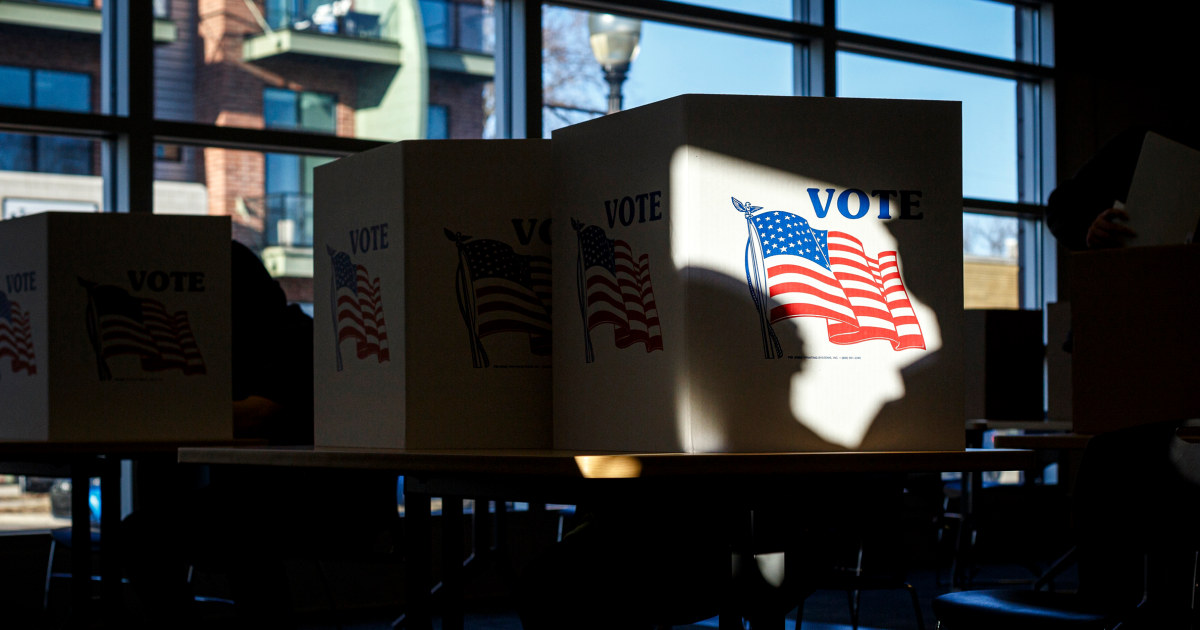Common sense might suggest that the Republican Party’s fake electors from the 2020 elections would be politically radioactive in the GOP. It’s apparently not working out that way, however.
Take the latest developments in Michigan, for example. The Detroit News reported:
Six Republicans who are facing criminal charges after signing a document falsely claiming that Donald Trump won Michigan’s electoral votes in 2020 were renominated by their party, over the weekend, to be GOP presidential electors this year. At the Michigan Republican Party convention Saturday in Flint, delegates chose 15 individuals — one from each of the 13 congressional districts and two at large — to serve as presidential electors if Trump wins the state in November.
Among the 15 are a half-dozen fake electors from four years ago.
Ahead of the local vote, former Rep. Pete Hoekstra, chair of Michigan Republican Party, denounced efforts to fold the fake electors legally accountable, insisting that the alleged criminals have been “singled out potentially very unfairly.”
The comments were, to be sure, bizarre, as was the state GOP’s willingness to choose so many fake electors to serve as presidential electors again this year.
But stepping back, the problem isn’t just that Republicans rewarded fake electors, the problem is made worse by the fact that Republicans keep rewarding fake electors.
In case anyone needs a refresher, after Trump’s defeat, Republicans in several states created forged election materials, pretending to be “duly elected and qualified electors,” and sent the documents to, among others, the U.S. Senate and the U.S. Archivist, as if the fake materials were legitimate. They were not.
These Republicans, of course, came to be known as their party’s “fake electors.” The larger criminal scandal surrounding their scheme has racked up indictment totals unseen since Watergate and Iran-Contra.
In theory, GOP officials should be embarrassed by the entire controversy. In practice, the party is leaning into its own mess.
We learned in May, for example, that several fake electors in Nevada were elected to serve as delegates to the Republican National Convention, even after they were criminally charged. “Clearly, lessons learned,” The Nevada Independent’s Jon Ralston said sarcastically in response to the news.
A month earlier, state prosecutors in Arizona indicted 18 Republicans as part of the party’s fake elector scheme, resulting in allegations of conspiracy, fraud and forgery. Some of them will be convention delegates, too. After the state GOP made the decision, The Arizona Republic’s Laurie Roberts summarized in a column: “The Arizona Republican Party on Saturday sent a flat out, full-throated, flabbergasting message to the voters of this great state. We be crazy, they proclaimed.”
Last month, CNN reported that Republicans from seven battleground states agreed to send “fake electors and others who worked to upend the 2020 election results to represent their state parties at the Republican National Convention in Milwaukee.”
Not all of the fake electors who served as convention delegates were under criminal indictment — but some were, and the party didn’t seem to care.
It’s against this backdrop that Michigan Republicans backed indicted fake electors, too.
As the criminal charges piled up, it seemed implausible that GOP officials would extend rewards to those who were caught serving as fake electors. And yet, here we are.
This post updates our related earlier coverage.


Leave a Reply